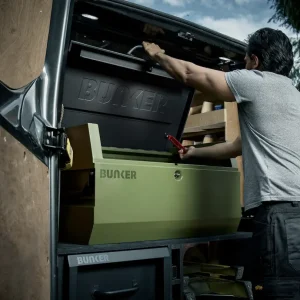VancoWinter 2's tread is designed in such a way that it acts like a big ice-scraper if the driver has to pull up in a hurry, reducing braking distances on wintry roads, says Continental. Open shoulders on the tyre with wide lateral grooves should improve water drainage, reducing the risk of aquaplaning.
The compound used to construct the tyre helps to give it up to 30 per cent more mileage potential compared with an ordinary tyre, says the manufacturer.
“As soon as temperatures drop to just 7°C, standard van tyres start to lose their grip, which makes driving more difficult,” says a spokesman. “But this is when VancoWinter 2 starts performing at its best.
“With average monthly temperatures in the UK falling below 7°C between October and April, it is important for van users to think about switching to cold weather tyres to keep drivers and passengers safe,” he adds.
What Van? finds this contention rather surprising. While specialised winter tyres may at times be necessary in, for example, the far north of Scotland, or if you're travelling to Austria or Switzerland in December, standard van tyres should be more than adequate for the vast majority of road conditions likely to be encountered in the UK year-round. We find it difficult to believe that there is a real need for most British van owners to switch to a different set of tyres when winter arrives.

 Continental has launched a winter tyre designed to anticipate the needs of operators who fear they may face snow and ice — despite global warming — in a few months time.
Continental has launched a winter tyre designed to anticipate the needs of operators who fear they may face snow and ice — despite global warming — in a few months time.



